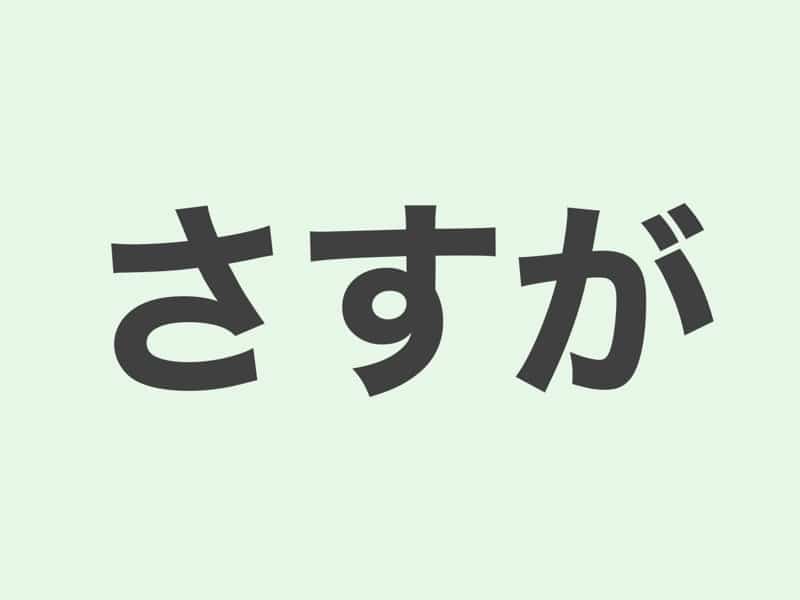説明 (Explanation)
文法(Grammar):さすがの名詞・さすがに
意味 (Meaning):「やっぱり」「本当にすごい」といった意味で訳されることがあります。他の人の能力や特質、業績を称賛したり、認めたりするための表現です。
英語(English):①さすが is a Japanese expression used to convey admiration, respect, or acknowledgment of someone’s abilities, qualities, or achievements. It implies that the person being referred to meets or exceeds expectations based on their reputation or past behavior. “as expected,” “indeed,” or “impressive.”
②さすが is used to express a limit or an expectation that exceeds normal circumstances. It can often be translated as “certainly,” “indeed,” or “as expected.” It emphasizes the surprising or extraordinary nature of the situation being discussed.
JLPT Textbook Recommendations
例文 (Examples)
①
- さすが、加藤さん。
- こんな難しい問題ができるなんて、さすがですね。
- さすがの田中さんでも、今日はかなり怒っていた。
- さすがの山田くんでも、昨日の試験は難しかったそうだ。
②
- お酒は強いが、さすがにワイン1本は飲めない。
- 電車はよく遅れるけど、さすがに3時間は遅れすぎだ。
ひらなが (Hiragana)
①
- さすが、かとうさん。
- こんなむずかしいもんだいができるなんて、さすがですね。
- さすがのたなかさんでも、きょうはかなりおこっていた。
- さすがのやまだくんでも、きのうのしけんはむずかしかったそうだ。
②
- おさけはつよいが、さすがにワインいっぽんはのめない。
- でんしゃはよくおくれるけど、さすがにさんじかんはおくれすぎだ。
英語翻訳 (English Translation)
①
- As expected of you, Mr. Katō.
- I can’t believe you can solve such a difficult problem; you’re truly impressive!
- Even the remarkable Mr. Tanaka was quite angry today.
- Even the impressive Yamada-kun found yesterday’s exam difficult.
②
- I can handle alcohol well, but I certainly can’t drink a whole bottle of wine.
- Trains are often delayed, but being three hours late is just too much.





コメント